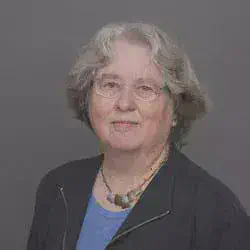EVENT: The strong and weak suits of state-of-the-art NLP
Abstract
Human language is a robust and adaptable communication system that enables us to coordinate thoughts and actions over great distances in time and space. Its essential place in any model of human intelligence and social behaviour has been acknowledged since the Turing test was formulated in 1950. The best current natural language processing (NLP) algorithms are sometimes argued to pass the Turing test — but do they really? In this talk, Professor Janet Pierrehumbert will argue that current deep learning algorithms for NLP incorporate some, but far from all, of the core formal properties of human linguistic cognition. This means that they show surprising human-like behaviour in some tasks, while deviating strongly from human-like behaviour in others. She will explain what problems remain for the future by comparing the formal properties of deep learning algorithms to some formal proposals about human linguistic cognition, as developed in the language sciences.
Date Oct 12, 2022 2:00 PM — 4:00 PM
Event WiS Seminar Series - The strong and weak suits of state-of-the-art NLP
Location King’s College London (KCL)
Bush House, 30 Aldwych, London, WC2B 4BG
Biography

Professor Janet Pierrehumbert has an interdisciplinary background from Harvard and MIT in linguistics, mathematics, and electrical engineering and computer science. Her PhD dissertation developed a model of English intonation that was applied to generate pitch contours in synthetic speech.
From 1982 to 1989, she was a Member of Technical Staff at AT&T Bell Laboratories in Linguistics and Artificial Intelligence Research. From there, Janet moved to Northwestern University, where she headed a research group that used experimental and computational methods to understand lexical systems in English and many other languages.
Janet joined the University of Oxford faculty in 2015 as Professor of Language Modelling in the Oxford e-Research Centre. She has held visiting appointments at Stanford, the Royal Institute of Technology, the École Normale Superieure, and the University of Canterbury.
She is a Member of the National Academy of Sciences, a Fellow of the American Academy of Arts and Sciences, a Fellow of the Cognitive Science Society and a Fellow of the Linguistic Society of America. She was elected to the US National Academy of Sciences in 2019. She won the Medal for Scientific Achievement of the International Speech Communication Association (ISCA) in 2020.
How to join
Please register for the seminar in advance. This is due to limited room capacity.



